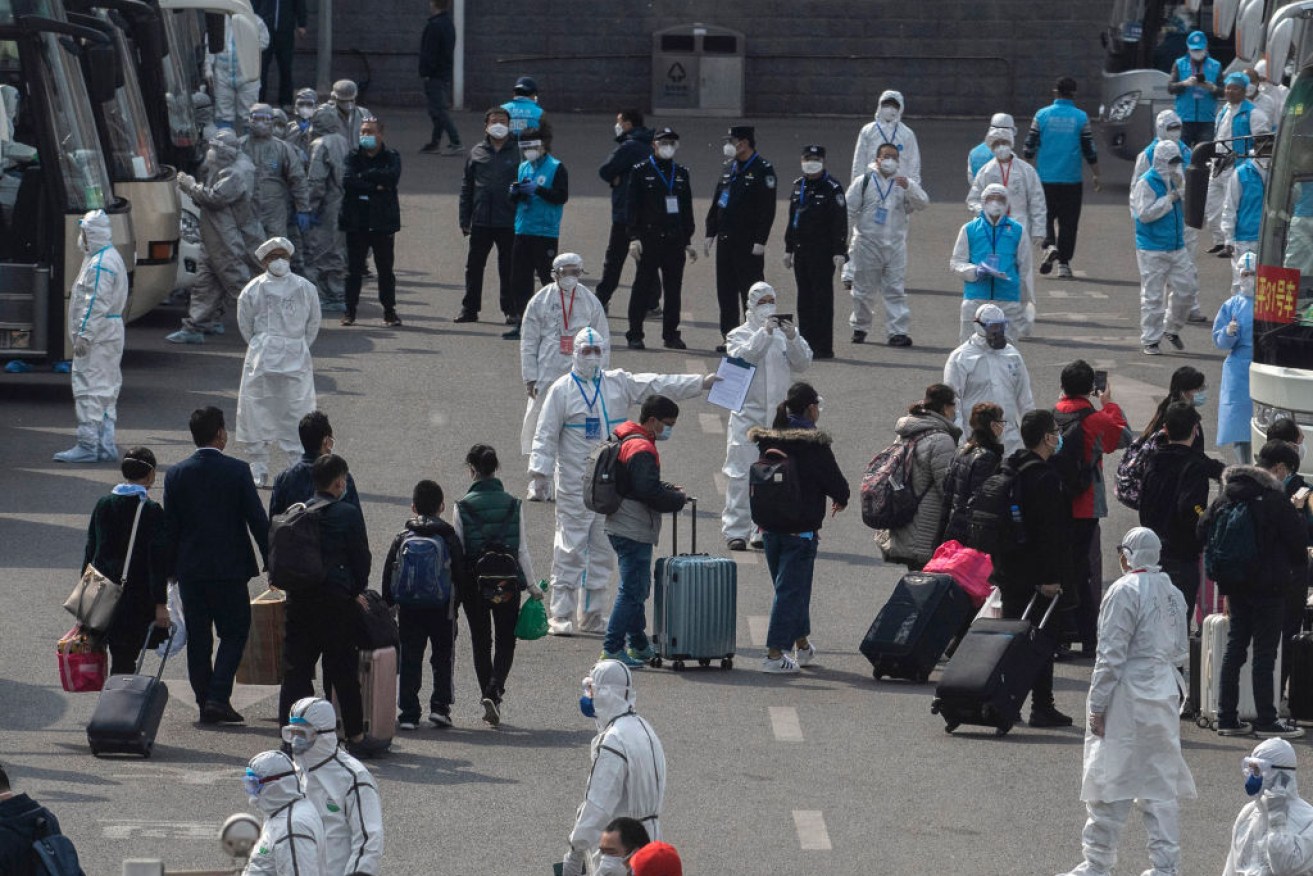Study warns of ‘second wave’ of coronavirus infections if lockdowns eased


China fears an increase in imported cases could trigger a new wave of infection. Photo: Getty
A study has warned of a ‘second wave’ of coronavirus infections unless global lockdown measures are maintained until a vaccine is created.
Mathematical modelling based on China’s experience has found “aggressive” interventions such as business shutdowns and travel restrictions successfully abated that country’s first wave of COVID-19.
But relaxing such strict measures runs the risk of enabling a sweeping second wave of the virus, with more devastating consequences, the study published in The Lancet states.
The warning comes as Australians were warned not to become complacent over the Easter holiday break and to stay at home as the world ticked over 100 days of COVID-19.
https://twitter.com/DrTedros/status/1248240014942711808
Since late February, daily cases of coronavirus in China’s provinces outside the epicentre of Hubei have “dropped substantially to nearly zero” as a result of the country’s strict lockdown enforcement, the study’s authors wrote.
“For example, only residents were allowed to enter residential communities, face mask-wearing was made compulsory, and non-essential community services were shut down.
“Although the aggressive countermeasures appear to have reduced the number of reported cases, the absence of herd immunity (a vaccine) against COVID-19 suggests that counts could easily resurge when these interventions are relaxed, as business, factory operations, and schools resume.”
Until a vaccine is rolled out across the globe, it was vital for countries to strike a balance between gradually resuming normal life and closely monitoring infection rates.
Worst economic fall-out since Great Depression
But the lockdown and quarantine procedures around the world have had a significant impact on economies, with the IMF predicting the worst fall-out since the 1930s Great Depression, with only a partial recovery seen in 2021.
IMF managing director Kristalina Georgieva painted a far bleaker picture of the social and economic impact of the coronavirus than even a few weeks ago, noting governments had already undertaken fiscal stimulus measures of $US8 trillion, but more would likely be needed.
She said the crisis would hit emerging markets and developing countries hardest of all, which would then need hundreds of billions of dollars in foreign aid.
“Just three months ago, we expected positive per capita income growth in over 160 of our member countries in 2020,” she said.
“Today, that number has been turned on its head: we now project that over 170 countries will experience negative per capita income growth this year.”
-with AAP








